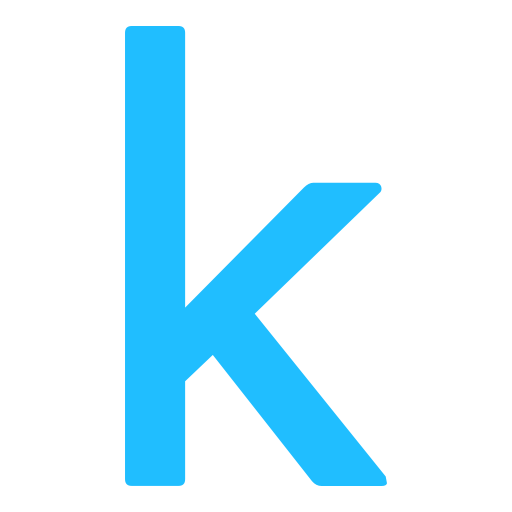Kaggle and ShipStation integration
Save yourself the work of writing custom integrations for Kaggle and ShipStation and use n8n instead. Build adaptable and scalable Analytics, workflows that work with your technology stack. All within a building experience you will love.


How to connect Kaggle and ShipStation
Create a new workflow and add the first step
In n8n, click the "Add workflow" button in the Workflows tab to create a new workflow. Add the starting point – a trigger on when your workflow should run: an app event, a schedule, a webhook call, another workflow, an AI chat, or a manual trigger. Sometimes, the HTTP Request node might already serve as your starting point.
Build your own Kaggle and ShipStation integration
Create custom Kaggle and ShipStation workflows by choosing triggers and actions. Nodes come with global operations and settings, as well as app-specific parameters that can be configured. You can also use the HTTP Request node to query data from any app or service with a REST API.
Supported API Endpoints for Kaggle
List competitions
List available competitions
List competition files
List competition files
Download competition files
Download competition files
Submit to a competition
Make a new competition submission
List competition submissions
Show your competition submissions
List datasets
List available datasets.
List files
List dataset files.
Download dataset files
Download dataset files.
Create dataset
Create a new dataset after initializing metadata.
Create dataset version
Create a new version of an existing dataset with version notes.
Download metadata
Download metadata for an existing dataset using its URL suffix.
Get dataset creation status
Get the status of the dataset creation process using its URL suffix.
List kernels
List available kernels based on specified filters.
Initialize kernel metadata
Initialize metadata for a new kernel setup.
Push code to kernel
Push new code to a kernel and execute it.
Pull code from kernel
Pull down the latest code from a kernel.
Get kernel output
Retrieve data output from the latest run of a kernel.
Get kernel run status
Display the status of the latest kernel run.
Get model
Retrieve a specific model using its URL suffix.
List models
Get a list of models with optional sorting and filtering.
Initialize model metadata
Create a metadata file for a new model.
Create model
Create a new model with specified metadata.
Delete model
Delete a model using its URL suffix.
Update model
Update a model by fetching its metadata file first.
Get model instance
Retrieve a model instance using its URL suffix.
Initialize model instance
Initialize a metadata file for creating a model instance.
Create model instance
Create a new model instance after initializing metadata file.
Delete model instance
Delete a model instance using its URL suffix.
Update model instance
Update a model instance after fetching its metadata file.
Create model version
Create a new version for a model instance.
Download model instance version
Download a model instance version using its specific URL suffix.
Delete model instance
Delete a model instance version using its specific URL suffix.
View current config values
View the current configuration values set in the system.
Set a configuration value
Set a new value for a specific configuration parameter.
Clear a configuration value
Clear an existing configuration value by name.
To set up Kaggle integration, add the HTTP Request node to your workflow canvas and authenticate it using a generic authentication method. The HTTP Request node makes custom API calls to Kaggle to query the data you need using the API endpoint URLs you provide.
See the example hereThese API endpoints were generated using n8n
n8n AI workflow transforms web scraping into an intelligent, AI-powered knowledge extraction system that uses vector embeddings to semantically analyze, chunk, store, and retrieve the most relevant API documentation from web pages. Remember to check the Kaggle official documentation to get a full list of all API endpoints and verify the scraped ones!
Supported API Endpoints for ShipStation
Create account
Register a new account.
List account tags
Retrieve a list of account tags.
Add funds to carrier
Add funds to a specified carrier.
Get carrier info
Retrieve information about a specific carrier.
List carriers
Retrieve a list of all available carriers.
List packages
Retrieve a list of packages for a carrier.
Get customer info
Retrieve detailed information about a specific customer.
List customers
Retrieve a complete list of customers.
Delete order
Delete a specified order from the system.
List orders
Retrieve a complete list of orders.
Create label for order
Creates a shipping label for a given order.
Add tag
Adds a tag to an order.
Assign user
Assigns a user to an order.
Create/update multiple orders
Creates or updates multiple orders at once.
Get order
Retrieves information about a specific order.
Hold order
Puts an order on hold until specified.
List by tag
Lists orders filtered by a specific tag.
Mark shipped
Marks an order as shipped.
Remove tag
Removes a tag from an order.
Restore from hold
Restores an order from a held state.
Unassign user
Unassigns a user from an order.
Create label
Creates a shipping label for an order.
Get a product
Retrieve detailed information about a specific product.
List products
Retrieve a list of all products.
Create label
Create a shipping label for a shipment.
Get rates
Retrieves shipping rates for shipments.
List shipments
Lists all shipments.
Void a label
Voids an existing shipping label.
Create label
This endpoint is used to create a shipping label.
Get rates
Returns rates for the specified package type.
List users
Retrieve a list of all users in the system.
Create a warehouse
Add a new warehouse to the system.
Delete warehouse
Deletes a specified warehouse.
Subscribe to a webhook
Subscribes to a specified webhook.
To set up ShipStation integration, add the HTTP Request node to your workflow canvas and authenticate it using a generic authentication method. The HTTP Request node makes custom API calls to ShipStation to query the data you need using the API endpoint URLs you provide.
See the example hereThese API endpoints were generated using n8n
n8n AI workflow transforms web scraping into an intelligent, AI-powered knowledge extraction system that uses vector embeddings to semantically analyze, chunk, store, and retrieve the most relevant API documentation from web pages. Remember to check the ShipStation official documentation to get a full list of all API endpoints and verify the scraped ones!
Kaggle and ShipStation integration details
FAQ
Can Kaggle connect with ShipStation?
Can I use Kaggle’s API with n8n?
Can I use ShipStation’s API with n8n?
Is n8n secure for integrating Kaggle and ShipStation?
How to get started with Kaggle and ShipStation integration in n8n.io?
Looking to integrate Kaggle and ShipStation in your company?
The world's most popular workflow automation platform for technical teams including
Why use n8n to integrate Kaggle with ShipStation
Build complex workflows, really fast


